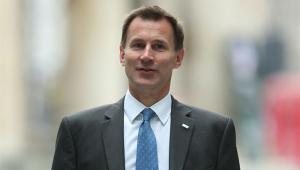
Dan Corry
This was a strange but very significant fiscal event.
Already we have had two such announcements in 2021 and they were massive.
So, we need to see all three together to try to understand what is going on – and to try to see whether ‘brand Sunak’ is a ‘big spender’, Johnson type guy or a small ‘c’ conservative, ‘worry about the deficit’ kind of guy.
In March we had a substantial and largely disguised income tax rise as personal allowances and higher thresholds were frozen for four years – while there were announcements of steep future rises in corporation tax.
In September we had the announcement that despite the manifesto pledges, national insurance would go up (to help health and social care).
Both of these moves were accounted for in the Budget arithmetic with the Office for Budget Responsiblity noting that taking the March and October budgets together, “the chancellor has raised taxes by more this year than in any single year since Norman Lamont and Ken Clarkes’ two 1993 Budgets”.
So, what happened today?
How much of the pre briefed spending was new, how much in fact multi-year and so less bit than it sounded, how much was in nominal rather than real terms, how much was capital – when arguably current was what was needed?
Where are we now on the debt and deficit?
And what did Sunak do about the risks to the economy – inflation and a potential hike in interest rates being amongst the biggest dangers – and a return to more Covid-19 restrictions also being a strong possibility.
The OBR forecasts were for more growth than back in March – mainly thanks to the strong bounce back so far from the pandemic lockdowns.
And the so called ‘scarring’ at 2% was less than previously forecast (at 3%).
The forecasts would probably have been a bit better still if the OBR had been allowed by the chancellor to use more recent data.
Add to this the tax rises – and things like the suspension of the triple lock on pensions – and forecast deficits are lower too than in March.
On the whole it looks like Sunak used the headroom created to mainly increase spending, with some small tax cuts and some reduction in borrowing so that he hit his new fiscal rules (which, incidentally, look rather like the old ones).
So we continue with tax as a share of GDP being very high – the OBR says the highest since the 1950s - and public spending also at a high ratio (almost 42% by 2026-27) especially given we are not in a recession.
It was vital that we finally got a three-year spending review as departments, local government and everyone else who needs to plan around them had been living on a thin diet of annual reviews for the last few years.
Health has done well – but we knew the current side of that already.
And in fact, while overall spending is increasing quite fast at present – after the decade of austerity that the Conservative led governments introduced following their 2010 election victory – health is gobbling up an awful lot of that.
In fact, IFS director Paul Johnson estimates health’s share at 40% of everyday spending increases, leaving not much on the current, everyday spending, for the rest.
But in contrast to most of the Spending Reviews of the past 12 years, we did see real terms increases more or less across the board.
This was good especially for areas that had experienced big cuts over many years – like justice and local government.
Whether it is enough to offset those cuts is debatable.
The announcements on 'Levelling Up' were also a bit underwhelming – maybe we have to await Michael Gove’s White Paper for more action there.
And many will be confused as to how some of the measures announced fit with the effort to hit net zero and impress at COP26, – the cut in domestic flight tax and the freezing of fuel duty among them.
The chancellor was clearly aware of the cost-of-living crisis and there was welcome news on the minimum wage, and an important change in the Universal credit taper rate.
However, early analysis suggests that with higher inflation in the offing, energy prices rising, the NIC rises, and tax threshold freezes the next five years will not be great ones for real household disposable income.
The chancellor made a big play in his speech that he really wanted to be a tax cutting chancellor.
He must hope that the economic and fiscal forecasts improve over the next year or so to give him a war chest ready for pre-election handouts.
But of course, things could easily go the other way.












